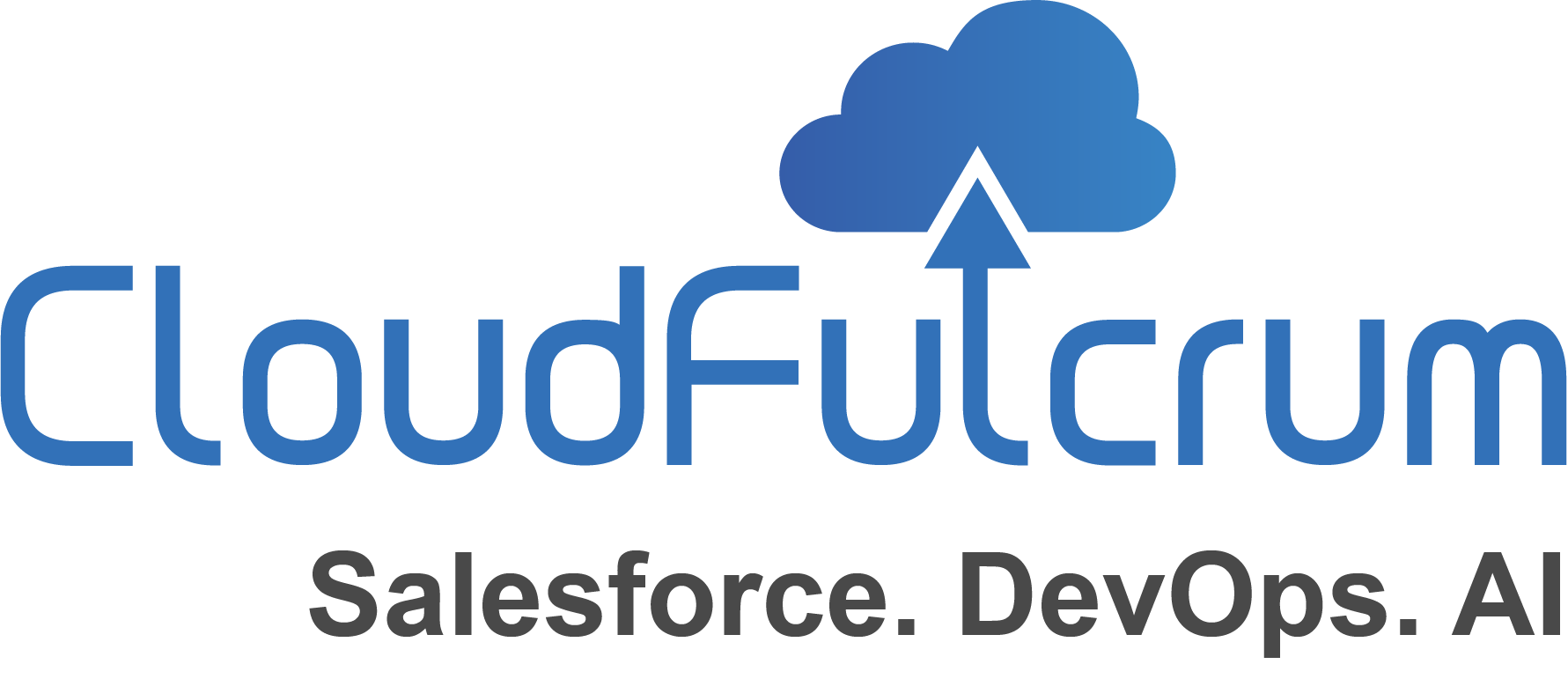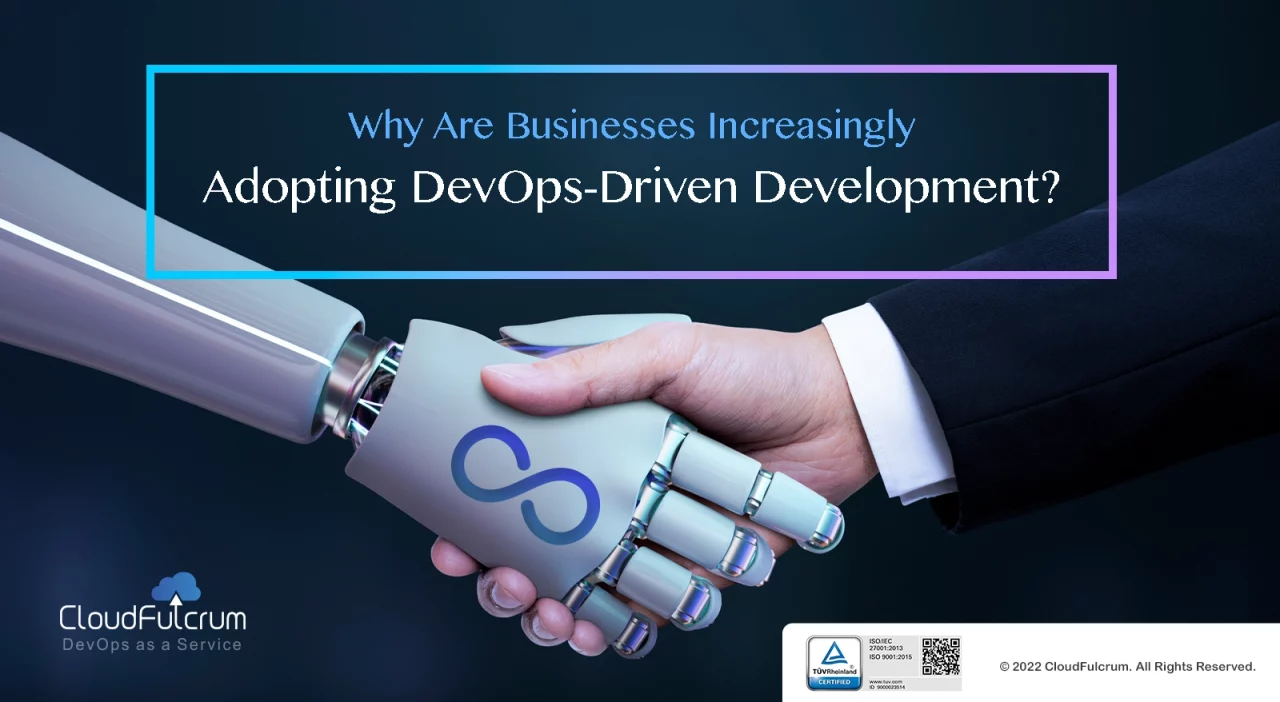DevOps has gathered a lot of momentum over the past couple of years. A Global Market Insights report says the size of the DevOps market exceeded $4 billion in 2019 and is further projected to grow at a CAGR of over 20% between 2020 and 2026.
Gartner also notes that over 85% of organizations will be adopting a cloud computing strategy by 2025 and 95% of new digital workloads will take place on cloud platforms, a 30% increase from 2021!
Stats like these continue to turn up. But if you are among those sceptics who doubt if DevOps is a good idea or think that hiring a DevOps engineer is not an investment worth making, here’s some food for thought:
- Traditional operations are 41% more time-consuming and its users spend 21% more time managing issues
- DevOps users spend 60% less time on handling support cases and 33% more time on infrastructure improvements
So, is DevOps a technology? No – it’s NOT.
What is DevOps?
Coined by the IT guru Patrick Dubois in 2009, DevOps – as the name suggests – is an amalgamation of development and operations. It’s an organizational approach that enables faster development of applications and easier maintenance of existing deployments.
A major edge DevOps gives to businesses is the promotion of shorter, more controllable iterations through the adoption of best practices, automation, and new tools. The DevOps umbrella covers everything – right from organization and culture to processes and tools.
DevOps brings a more collaborative approach to a company’s software development and IT operations. The deployment methodology itself stems from an agile approach to software development. DevOps encourages continuous testing throughout the development cycle and not just waiting till the end, which allows developers to weed out bugs ad help create better products.
Why Are More Businesses Adopting DevOps?
Google Cloud’s 2021 Accelerate State of DevOps Report highlights the advantages successful implementation of DevOps has on business growth. The report clearly states,” This year we saw that elite performers continue to accelerate their pace of software delivery, increasing their lead time for changes from less than one day to less than one hour.”
“Not only that, but elite performers deploy 973x more frequently than low performers, have a 6570x faster lead time to deploy, a 3x lower change failure rate, and an impressive 6570x faster time-to-recover from incidents when failure does happen. You read that right: compared to low performers, elite performers are continually able to empirically demonstrate organizational success with DevOps.”
Some visible benefits businesses get out of DevOps include:
- Shorter development cycles: The most obvious one. DevOps enables businesses to innovate faster than their competitors, resulting in shorter development cycles. The main enablers here are automation, continuous delivery, and quick and iterative feedback, which helps errors to be fixed quickly.
- Early error detection: When teams work together in a collaborative environment with iterative cycles, there is a whole new level of knowledge sharing that sets in and results in the earlier detection of errors. This is what DevOps enables. With continuous monitoring and code testing, the overall build quality of the application is greatly enhanced.
- CI/CD: It’s one of the primary benefits of DevOps – continuous integration and continuous delivery. Many times, software needs to be delivered in a very short amount of time. DevOps automation helps reduce the go-to-market timelines by developing and integrating the code instantly, facilitating continuous release and deployment with better quality and efficiency.
- Team communication: DevOps improves business agility by facilitating mutual collaboration, effective communication, and integration across teams. As the focus is more on performance in the DevOps culture rather than individual goals, the processes become more transparent.
- Efficient implementations: Programming defects are generally one of the most common reasons for implementation failures and DevOps helps prevent them via frequent code versions, making it easier to detect code defects. When teams use DevOps, recovery is much faster as well.
- Cost reduction: All the benefits of DevOps will not be complete without a mention of costs. Of course, all the above improvements will lead to cost reduction, and the stats mentioned right at top of this article will attest to that!
- Innovation: DevOps definitely helps in sparking more innovation amongst teams as they are free of the mundane stuff. The teams collaborate more freely and openly with efficient and streamlined processes. It results in innovative approaches to resolving key issues.
Should You Invest in DevOps-Driven Development?
Besides the above, businesses are finding more reasons to invest in DevOps. Should you invest in it? The answer is – it depends, on your business needs. It helps you improve security, bring down risks, and improve compliance – reasons enough to be on the DevOps path.
Additionally, faster updates and bug fixes propel elite orgs to deploy 200 times faster than low performers and 2, 555 times quicker lead output, per a CIO report. Effective DevOps deployment also helps lower the monthly bills on your IT infrastructure maintenance and improve service availability. Gartner says it costs businesses up to $5,600 per minute of downtime.
Plus, on a side note, DevOps increases employee satisfaction and enhances customer experience, in turn, which is a bonus.
But above all, the key reasons to invest in DevOps-driven development would be:
- Shift-Left approach: It’s the primary reason that enables DevOps to enhance software delivery, speed, and efficiency because the focus of the shift-left approach is empowering teams to focus on quality development, right from the get-go. It shortens the feedback loop and reduces the time taken to move along the release pipeline, reducing the failure rate and minimizing wasted efforts, time, etc. By testing more, developers will get more results, gauge the quality of the code, and run more compliance checks before promoting to a higher environment.
- Enhanced focus on automation: Automation is a natural fit in a DevOps-driven environment. It brings several benefits – the most important being consistency and quality in the dev environment, scalability, and enhanced speed and flexibility.
- Collaboration: Collaboration is as important to DevOps as automation and nearly as hard to achieve. Not every person knows it all – you need collaborative skills to work with different stakeholders to build better solutions.
- Savings: It has been said again and again. But here’s what a DevOps-driven environment will help you achieve – more value-driven savings. What we mean by that is saving not just in terms of dollars but reinvesting the time saved from DevOps into creating better products and experiences for the users. It also complements agile transformation efforts.
Despite having numerous benefits for an organization, DevOps is often taken as a relatively new technical concept. But sometimes, a lack of clarity and confusion in implementing DevOps principles can negatively impact small and medium organizations. It’s here then that a reliable and experienced service provider can help.
3 Important Things a Service Provider Must Have
- Experience – This should be your foremost criterion when looking for a DevOps service provider. As technology keeps changing, you need someone who can keep pace. Look for experience with automation tools such as Puppet, Ansible, Chef, and SaltStack as well as a high level of proficiency with Python, Ruby, PHP, and Java. They should also be familiar with continuous integration tools, such as Jenkins, CruiseControl, to name a few. Experience deploying code, database management, system design, and software architecture besides project management, risk management, or Scrum Master certifications would help.
- Service range – Whether you are looking for website development, software integration, or any other services, choose a provider that is able to deliver them all well. Splitting your tasks between several different DevOps service providers can sometimes cause unnecessary friction or confusion.
- Service – A good service provider listens to your specific needs and delivers exactly what you want, in a timely manner. They must be available to offer support when you need it.
CloudFulcrum can improve your service availability and enhance customer experience through agile practices with deep expertise in enterprise DevOps implementation and deployment. Our team will sit with you to understand your specific business needs and create a strategy tailored to your needs.
Set up a meeting today!

